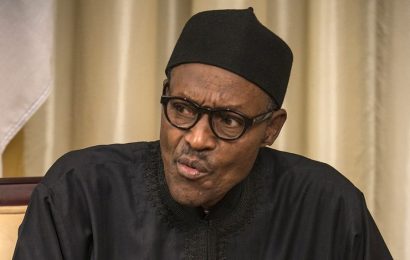

President Muhammadu Buhari has challenged African countries to expand and diversify their participation in international trade as part of measures to explore the benefits of the African Continental Free Trade Agreement (AfCFTA).
Buhari stated this on Monday in Lagos at the ongoing 9th edition of African Shippers’ Day organized by the Nigerian Shippers’ Council (NSC) in collaboration with the Union of African Shippers’ Council (UASC) with the theme “African Continental Free Trade Agreement: A Veritable Platform for African Shippers to Mainstream into Global Trade,”
The President, who was represented by the Minister of State for Transportation, Prince Ademola Adegoroye, affirmed that making AfCFTA a reality will require creating national institutions for implementing the Agreement, in addition to institutional coordination mechanisms for execution between the public sector, private sector and donors.
“That is why the Nigerian Government have intensified efforts aimed at identifying new opportunities for diversification and value chain development under the AfCFTA, and complementary actions considered necessary to overcome the existing constraints to intra-African trade.
“This we will achieve through cross-sectoral approach, considering not just trade, but also closely related areas such as agriculture, industry, macroeconomic management and infrastructure development, ” he said.

Adegoroye also lamented on the sharp contrast in the intra African Trade in goods when compared to other regions like Asia and Europe.
To him, as at 2017, intra-African trade in goods was $135 billion representing 15% of Africa’s total trade, while that of European Countries is as high as 70% with 60% in Asia respectively.
He noted that the imposition of export bans especially on food items by some countries and the disruption of global supply chain at the height of the COVID-19 pandemic showed how exposed and vulnerable African countries are because of limited productive capacity and lack of regional value chain.
In his words: “The global economy is a source of growth that African economies cannot afford to ignore. While African exports of goods and services have seen their fastest growth in the past decade, the volumes remain low at just 3 percent of global trade.
“African countries must therefore expand and diversify their participation in international trade and global value chains to create wealth, generate employment and reduce poverty on a large scale as well as transform their economies. Achieving this lofty economic objective I believe is one of the major reasons that informed the birthing of the African Continental Free Trade Area (AfCFTA).”
“The establishment of the AfCFTA presents major opportunities for production and exports, creates employment and limits the impact of commodity price volatility on the economies of various African countries. AFCFTA is expected to bring about a number of benefits to producers, consumers and countries alike. However, for AFCFTA to have a positive influence on long-term investment in productive capacities, the African government must develop appropriate supporting policies, build the requisite infrastructure and ensure an educated workforce. We will need to actively promote productive employment and decent workplace, women’s empowerment and food security and reduction in inequalities.”
The Executive Secretary of NSC, Emmanuel Jime in his welcome explained that there is need to sensitize various governments within the region to fast-track the dismantling of tariff and non-tariff barriers hindering trade in the region.
Explaining further, Jime explained that that the reorientation and reorganization of intra-African trade should start from the West African sub-region, adding that when the sub-region gets it right, it would be easier to connect and freely trade with other regions of the continent.
Jime said:“Africa needs to create smooth integration of transport Infrastructures and trade policies as well as the required awareness among the economic operators in the sub-region.”
Meanwhile, the Secretary General of Abuja Memorandum of Understanding (MoU) on Port State Control for West and Central African Region, Capt. Sunday Umoren reiterated the need to have African fleet that will convey goods to be traded within the region.
Umoren said, “AfCFTA came at the right time and we have this platform binding us together but we need to act fast and snatch the moment. Nothing stops this region from having a strong ship owing capacity, thus eliminating the burden and impact of high freight rate from foreign ships.”
“Abuja MoU would play its role as part of due diligence in supporting nations in engaging the carrier with respect to effective port state regulations in ensuring the safe carriage and delivery of goods with minimal issues,” he said.
In his submission. Dr Bashir Jamoh, the Director-General, Nigerian Maritime Administration and Safety Agency (NIMASA), urged the forum to come up with roadmap that would place Africa ahead of others in the international market.
Jamoh noted that collaboration between shipping, port and logistics would go a long way in ensuring efficiency and sustainability in the industry.
On his part, Mohammed Bello-Koko, the Managing Director of the Nigerian Ports Authority (NPA), said that automation remained vital tool for port efficiency.
Bello-Koko said that was why the NPA was working with the International Maritime Organisation to deploy Port Community System in Nigerian Ports to bring all stakeholders under one platform for ease of doing business.
..




